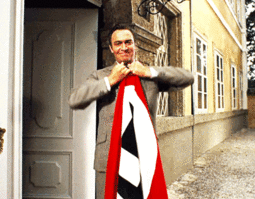wonder if other countries are the same. Especially Europe or Australia, if the population actually had a say on what goes on in their countries politic-wise. And then I found this, Australian Aamer Rahman talking about the illusion of choice as a mean to control the population
Yeah - well I agree and disagree with the chap above. Essentially is a depressing case of different bucket, same shit when you vote. Economically, both parties, right and left have modified versions of a centralist view on how to manage the country. Social issues usually manifest quite differently between the two parties, for example, Labour would never introduce a "work for the dole" scheme, but its one of the first things that the amusingly confusingly titled "Liberals" tried to do as soon as they were voted in.
I don't think corporations have quite as influential a role on policy here as they do in the states past, liberals are more likely to pander to corporate sensibilities given, ideologically, that's how they see wealth creation happening - while Labour tends to be more about getting their pound of flesh out of corporations in order to pay for social welfare programs.
Essentially tho, they are much of a muchness altho I think its as much a symptom of pragmatism as it is anything else. In a two party system, legislation only gets passed if it passes thru the house of commons - so, any change requires that both houses agree to the change with swing voters being likely - even expected from both houses.. Its a kinda checks and balances system that ensures there are no wild policy shifts as far as possible which obviously promotes a stasis of policy.
The media is probably the most influential player in the mix. Some papers have an obvious political bias towards one party or another so that who ever has the biggest readership swings favour in one direction or another.
Having said that - one good thing that we do is televise political debate in a thing called "Question time" .. every week, parliamentary sittings are aired - live with no editing so the public can see the debate that goes on behind policy making.. It's heated and hardly shows a unified front on a range of issues from social,. international and economic so, looking at these debates you can see that both houses have radically different views on the variety of ways to handle certain issues but - the checks and balances thing keeps the results of these debates to a more moderately static middle ground compromise.
Naturally - if one party has a vast majority in both houses - change happens quickly and the real differences in policy usually come thru - but that doesn't happen often on account of how we elect the senate and the commons on different frequencies so that any public sentiment can be expressed by way of the electoral process
TL/DR - essentially, yes, there is an illusion of choice but there isn't a simple reason for this - at least here in Oz.
